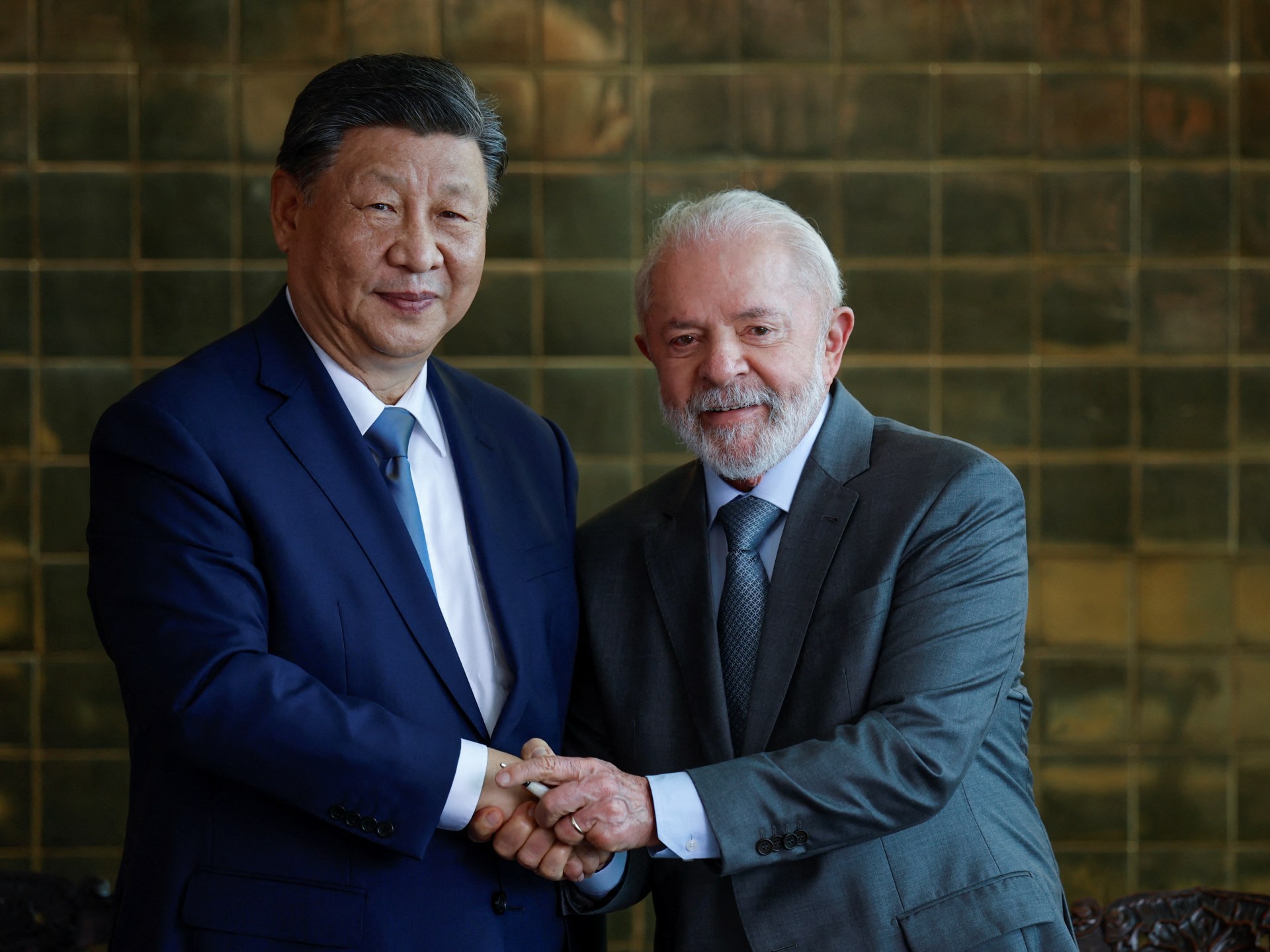Luiz Inacio Lula da Silva, the president of Brazil, praised the two nations’ “invincible” relationship when he visited China earlier this year for his third meeting with Xi Jinping since taking office in 2023.
According to experts, the proximity will likely increase even more now with President Trump’s announcement to impose a 50% tariff on Brazilian imports for obvious political reasons.
According to Tulio Cariello, director of content and research at the Brazil-China Business Council (CEBC), “the relationship between Brazil and China is much more positive and promising than the one with the United States today.”
Brazil was shocked by Trump’s pledge to impose a 50-percent tariff on Brazil, which is scheduled to go into effect on August 1. This is especially true given that, as Trump had previously stated on April 2, Brazilian imports will be subject to 10 percent of the “Liberation Day” tariffs.
In addition, that was significantly lower than the percentages other Brazilian competitors in the United States had, which indicates that there is still room for growth for businesses in South America’s most populated nation.
Thus, the sudden decision to impose a 50-percent tariff was a rude shock, especially for industries like car parts, coffee, and orange juice, which are major US exporters.
Following the BRICS summit in Rio de Janeiro, where leaders of developing nations expressed “serious concerns” about the increase in tariffs, which it claimed were “incompatible with WTO]WTO] rules, the 50-percent tariff was introduced.
Trump directly connected the tariff to former Brazilian President Jair Bolsonaro’s current predicament, which he called a “witch hunt,” in a letter defending the measure. Bolsonaro, who is frequently referred to as the “Trump of the tropics,” is facing legal action for allegedly trying to sway a coup to hold onto his position of power despite his 2022 defeat to Lula.
Trump also falsely claimed a Brazil trade deficit. Brazil has a $ 7.4 billion deficit with the US and a $ 31 billion surplus with China.
The tariffs’ political nature marked a sharp departure from Trump’s usual rationale, which caused widespread condemnation from China and Brazil’s political spectrum.
A spokesperson for China’s Ministry of Foreign Affairs said in the aftermath that “tariffs should not be used as a tool of coercion, intimidation, or interference.”
Trump risks tarnishing the US’s reputation as a trustworthy trade partner by using tariffs as political leverage rather than economic reasons, according to experts, making China appear more predictable and stable in comparison.
According to Mauricio Weiss, an economics professor at the Federal University of Rio Grande do Sul, “China has shown no indication of backtracking on decisions or making abrupt changes.”
boosting Chinese ties
The Asian nation surpassed Brazil in 2009, according to  , and trade and investment ties between the two nations have only grown stronger since.
On Monday, Brazil’s Ministry of Finance announced plans to set up a tax advisory office in Beijing, a start of a positive trend. Brazil has only four other countries with such offices, three in South America and one in the US.
The Brazilian government’s ministry said in a statement to Al Jazeera that the motivation is not politically motivated, but rather that it is because of the need to strengthen cooperation in fiscal and customs matters.
China has sought to increase domestic production by gaining access to both natural resources and raw materials, including oil, iron ore, copper, lithium, and agricultural products.
However, China has, according to CEBC, invested more than $ 73 billion in Brazil since 2007. Energy, infrastructure, agribusiness, and technology are some of the key sectors where the majority of those funds are going.
Weiss remarked that while the United States invests more heavily in Brazil, China’s investments are more focused and coordinated across all levels.
Brazilians are also consuming more and more Chinese goods. Seven out of ten electric vehicles sold in Brazil were produced by Chinese manufacturer BYD, which is now a common sight.
BYD’s purchase of a massive factory in Brazil’s northeastern state of Bahia was especially symbolic of China’s growing presence, which was to the detriment of the US.
Additionally, the two nations have agreed to look into how transportation can be integrated. A bi-oceanic rail corridor connecting Brazil and Chancay, a port built by China, is planned.
China’s regional influence was clearly demonstrated by Xi’s inauguration of the megaport in November, where total investment is anticipated to be worth $3.5 billion over the next ten years.
In response to concerns about Trump’s intentions for the region, other Latin American countries like Peru, Colombia, and Chile have also indicated their intention to rekindle relations with China. He has previously pledged to “take back” the Panama Canal, including through force.
Some claim that Brazil’s strengthening of relations with China does not imply that the South American nation will begin exporting goods to China because the two nations purchase goods from Brazilian companies in very different ways.
Brazil won’t export its goods to China because of this. That isn’t very logical, according to Livio Ribeiro, a researcher at the Getulio Vargas Foundation’s Brazilian Institute of Economics.
Weiss believes that Chinese investments could still be crucial in enabling Brazil to expand its industrial potential and diversify its economy.
Weiss argued that the ability to produce more of these products both domestically and internationally will already present a significant growth opportunity.
Lula said that because “China needs Brazil and Brazil needs China,” both countries will be “indispensable partners.”
Source: Aljazeera

Leave a Reply